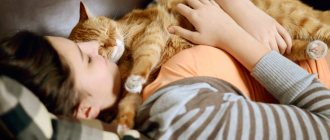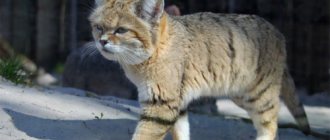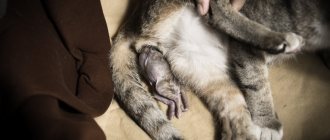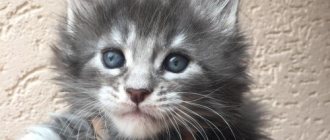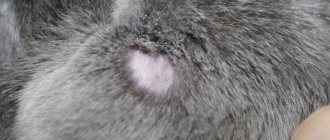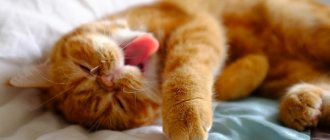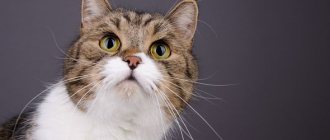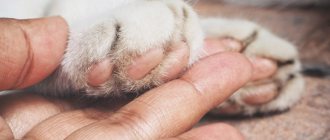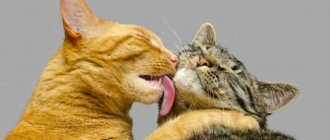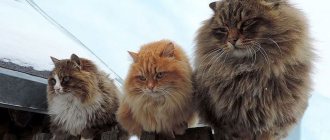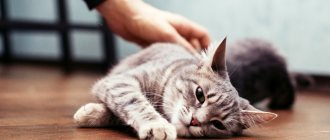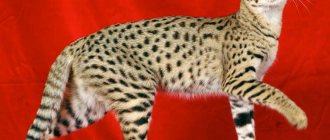Causes and timing of death of kittens
From seven to nine percent of purebred cats are born dead, or do not live longer than a week (they die). Another critical moment in development occurs at one month of age, when weaning from mother's milk, which gives immunity to infections. Non-viable cubs that die during breastfeeding are called “fading”.
What can kill a kitten - hypoglycemia, hypothermia, dehydration.
Sometimes the death of a newborn cat occurs unexpectedly. But most weakened babies develop symptoms of decline a few days before death: refusal of milk, restless behavior. At this stage, the baby can be helped by providing the necessary care and nutrition. The owner may not notice the dangerous signs in time, and then the process will become irreversible. The blood sugar level will decrease catastrophically, the frozen kitten will have a drop in body temperature (<34⁰C), pulse and breathing intensity will decrease until the heart rate completely stops and death.
Newborn kittens have eaten and sleep
Where and why do purrs go before they die?
In the wild, a dying cat seeks solitude. This is completely natural, because the animal is weakening and can no longer protect itself from predators. It finds a quiet, secluded place to hide and quietly leave . It is possible that death is perceived as a sign of illness. Therefore, the cat leaves its home to rest.
Pets also retain this instinct. And if they do not go outside, then the last refuge may be a closet or the far corner behind the furniture. At the same time, the animal rarely comes out of hiding and sleeps almost around the clock. This suspicious symptom should immediately alert you.
There is an opinion that by leaving, cats purposefully protect their owners from moral suffering.
The British even have a sign that the death of a cat in the house attracts trouble. But you shouldn’t believe in these superstitions, because it’s unlikely that a pet would wish bad things on its friend. It’s just that not everyone manages to leave the fireplace unnoticed, especially if the old man is weakened and cannot move independently.
© shutterstock
Hypoglycemia
Until the age of four weeks, the glycogen content in the kitten’s body is low. At this stage of life, muscle contractions, rather than the breakdown of glucose and brown fat, are responsible for heat production. Lack of glucose leads to hypoglycemia. A common cause is a large number of babies or insufficient milk from a nursing mother.
Glucose deficiency manifests itself:
- lethargy;
- passive behavior;
- convulsions;
- drop in body temperature.
At the initial stage, the baby can be saved by introducing additional complementary foods (natural milk substitute) and vitamins. If the disease is complicated, the veterinarian may prescribe an oral glucose solution. Injections under the skin at an early age are not recommended.
Hypothermia
The first weeks after birth, maternal warmth is vital for kittens, since the cubs’ own thermoregulation is far from perfect. Instinct dictates that mothers should not leave their furry babies alone for long periods of time. If the nest with babies is located in a cold place in the home, the cat can, on its own initiative, drag the offspring. The temperature in the room where babies grow should be maintained above 22 °C.
A kitten that finds itself far from the nest will have a gradual decrease in body temperature. The limit of 34 °C is a critical value at which the sucking reflex ceases to appear in a frostbitten kitten and digestive processes freeze. The mother will not care for such a child; without human help, the kitten will die. You can warm up your kitten using a heating pad and a warm blanket. Only after the animal’s temperature rises to 36 °C can you feed the baby formula using a pipette or bottle.
Attention! Giving food to a kitten (who is shivering) with a low temperature is dangerous. The milk will either enter the respiratory system or remain undigested inside the stomach. Both options will lead to immediate death.
Dehydration
Newborn animals must consume much more fluid than adults, as they rapidly lose moisture from the surface of the body. The average water consumption rate for a baby is 150 ml per kg of body weight, which is approximately twice as much as for an adult cat. Lack of milk or diarrhea leads to rapid development of dehydration. For these symptoms, your veterinarian will usually prescribe saline injections.
The air humidity in the room where the cubs grow must be at least 60%.
Leave a memory of a cat - taxidermy
Taxidermy is a method of making realistic images (stuffed animals) of animals, the basis of which is the skin of the animal. It is assembled onto a certain base, and the cavity inside is filled with filler.
(Quote from Wikipedia)
Many people find great comfort in having a constant, realistic visual reminder of their deceased pet. The cost of the service varies from $1000 and increases depending on a number of factors.
Birth trauma and birth defects
Early mortality is often associated with oxygen starvation of the body due to delay in the birth canal or late opening of the fetal membrane. A female giving birth for the first time may need human assistance. This is especially important if labor is prolonged.
Experience shows that resuscitation of a newborn kitten without signs of life does not give positive results. Lack of oxygen immediately after birth has fatal consequences: serious damage to the nervous system and brain of the baby. It is also very difficult to resuscitate premature kittens.
Anomalies that cause death:
- cleft palate;
- absence of anus;
- navel hernia;
- cleft lip;
- skeletal deformity;
- disorders of blood supply and cardiovascular activity;
- respiratory system defects;
- absence of organs.
If the birth of children with serious pathologies recurs, the female should be sterilized.
You can bring a baby back to life in the following cases:
- the baby was born with low body weight;
- the baby’s cranial bones or ribs are deformed;
- one or more limbs are missing.
Making a decision about the need for resuscitation measures falls entirely on the shoulders of the animal owner. It should be taken into account that a cat with congenital defects will have reduced immunity.
In addition to these reasons, the death of a newborn may be a consequence of an infection transmitted in the womb of the mother.
Photo - British kittens after eating
Maternal factor
One of the causes of mortality is maternal misbehavior. It happens that a mother eats the weakest child in order to feed the rest of the offspring. This instinct was a feline inheritance from wild relatives. If a domestic cat has eaten the entire litter, the female must be spayed, otherwise this will happen again in the future.
An inexperienced mother can leave her children alone for a long time, in which case the pets develop hypothermia.
Insufficient quantity or low fat content of milk can also disrupt the normal development of children. The reason is too young age, exhaustion or obesity of the woman in labor.
Photo of a warm playpen with newborn kittens
Causes of mortality in growing kittens
After leaving the breastfeeding period, the animal's immune system is subjected to serious tests. Until this moment, the baby is protected by mother's milk, and inside the womb - the fetal membrane.
A sick cat can cause infection in babies when it bites the umbilical cord. If the female has mastitis, staphylococci and streptococci will pass to the cubs through the milk. Chlamydia causes pneumonia and purulent conjunctivitis. If examination of the female shows the presence of infectious diseases, the children must be transferred to artificial nutrition.
Viral infections
Intrauterine pathogens include herpes viruses, calcivirosis and panleukopenia. These diseases and illnesses cause death on the second or third day after birth.
The next dangerous period begins after the eighth week of life, so cats must be vaccinated against viruses at the age of two months.
Parasites
Can you die from worms, depriving? Round nematodes can enter a cat's intestines both before and after birth. A large number of worms leads to a reduction in nutrients entering the body, as well as poisoning by parasite waste. The worst case of injury is intestinal rupture.
Fleas themselves are not fatal. However, these insects are carriers of many infectious diseases and cause allergies. Flea bites cause itching and inflammation on the skin. Pathogenic bacteria multiply in scratches left after scratching. The presence of fleas in a pet reduces the body's resistance to dangerous diseases.
Foreign objects
Growing pets tend to try everything interesting. Often this interest causes objects to enter the digestive or respiratory system. Cats with long hair, when licking themselves, swallow a large number of individual hairs. Hair that gets into the stomach forms hard clumps that can block the intestines and cause peritonitis. In such a situation, an emergency call to the doctor is necessary.
What to do if a kitten is dying
Death within the first three days after birth affects terminally ill animals. Babies who fall ill after this period can be saved with timely medical care.
Indications that indicate that you urgently need to see a veterinarian:
- lack of appetite (poor eating);
- diarrhea and vomiting;
- body temperature is higher or lower than normal;
- lack of coordination of movements;
- underweight (not gaining);
- convulsions;
- bleeding;
- traumatic injury;
- purulent discharge from the nose, ears or eyes.
Before the doctor arrives, you need to warm and calm the kitten. The best way is to hold the baby close to you.
Natural care
If a cat died of old age, then there is no need to look for some secret meaning in this. Every living being passes away one day, and no one can stop it. However, once upon a time even such natural care, and in particular the death of a pet in the house, had a negative interpretation. It was believed that all household members, without exception, would face life trials, illnesses, accidents and other troubles. Today, esotericists do not see any signs in the natural ending of the life cycle, and if a cat dies at home, the signs only advise a worthy send-off for the pet.
Important: By the way, in the modern world it is customary to euthanize a dying animal in order to end its suffering. But is it worth doing?
Putting to sleep, although it looks like a gesture of mercy, in essence is not one. Moreover, this procedure can easily be equated to intentional murder. Is it worth reminding that the person in this case will face a serious punishment, including at least several years of total troubles and bad luck.
Why should you not resort to euthanizing an old or even sick animal? The fact is that every soul, including the one that temporarily lived in your furry pet, must go through a certain path of development. Who knows, maybe it should be difficult and difficult, including the cat's pain and the suffering of the person who is watching it?
If a cat dies in the house, then take care to create acceptable conditions for it. Set up a secluded place, keep curious children away and don’t make a big tragedy out of it. By deeply longing for your pet, you will deprive his soul of the opportunity to move forward. But remember, if necessary, your friend will definitely return in the form of a new four-legged pet, which will once again save you from trouble.
Complications leading to the death of a kitten
Kittens that have suffered birth trauma or intrauterine infection are at risk. Low weight and a weakened body will not allow such a baby to withstand competition with its brothers in the fight for mother's milk.
The respiratory processes of a sick cat are inhibited, the sucking reflex is weak, the body temperature drops below normal, the functioning of the circulatory system slows down, and then motor activity is lost. These processes irreversibly lead to convulsions, coma and death.
Dehydration
A kitten's kidneys are underdeveloped (compared to an adult animal) and excrete a large amount of fluid. Therefore, the body of a cat baby needs a constant supply of moisture. If the baby eats sluggishly or shows symptoms of diarrhea, this is a harbinger of impending dehydration. Weight loss is caused by fluid loss. Other signs of dehydration:
- dry mouth;
- bright pink color of the tongue and mucous membrane;
- flabby body muscles;
- drop in physical activity.
Symptoms of dehydration indicate the need to provide additional nutrition for the baby. Your veterinarian may recommend saline injections.
Hemolysis
Hemolysis is a disease caused by an unfortunate combination of the blood types of the father and mother of the cub. From the moment of birth, the kitten’s body begins to destroy foreign red blood cells. Antibodies that enter the bloodstream with mother's milk are responsible for this protective process.
Each blood group (A, B or AB) has its own type of antibodies. At the same time, antibodies of group B are hostile (bind) to red blood cells of group A. If the baby has inherited the paternal blood group A or AB, then the antibodies obtained with mother's milk (type B blood) will lead to the destruction of red blood cells, the development of anemia and complete metabolic disorders in the body.
The process of breakdown of red blood cells is especially active in the first days after birth. As a measure to protect babies at risk, they are bottle-fed formula for the first 16 hours. After this time, the walls of the baby’s intestines become stronger and stop allowing antibodies into the blood. The negative consequences of such precautions are due to the fact that in the first hours the baby’s body receives globulins, which are responsible for the state of the body’s immune system.
If it is not possible to determine the baby’s blood type, you can look at the color of the baby’s urine after the first reduced intake of mother’s milk. A brown tint will indicate problems with antibodies. To minimize the risk of hemolysis, breeders adhere to the following rules: cats with blood type B can be crossed with any partners, cats with blood type A can be bred with any cats. Cats with type A are only allowed to mate with animals of the same blood group.
Conjunctivitis
Kittens' eyelids remain closed until ten days after birth. If there are minor injuries, pathogenic bacteria and viruses can enter the sinus between the eyelid and the eye. If the eyelids are swollen and red, and purulent discharge flows from the eye, there is a reason to consult a veterinarian. Among the causes of such symptoms may be intrauterine infection with viral herpes.
Usually the disease affects several babies at once. To treat the eyelids, you need to peel them apart, wash your eyes with a two percent solution of boric acid and take a course of antibiotic treatment (in drops).
Brits crawl into a ball to stay warm
Why are cats supposed to die in the house?
The death of a pet causes unbearable pain in the soul and sadness in the heart of the owner, because during the time spent next to the person, the animal has become a full member of the family. Of course, it is sad when an animal, having previously said goodbye to its owner, leaves the walls of its home forever. But it is much harder to watch the death throes of a healthy and young cat or find its cold body.
If a cat dies at home, signs do not always carry a negative meaning for the owners. Superstitious people believe that the death of a pet is associated with mystical motives, because these animals have long been considered conductors between the world of the living and the dead. To answer the question of what the death of a cat means, you must first establish the reasons for the death of the animal.
Sudden death
It's always hard to part with a pet, especially if just yesterday he was impatiently waiting for your return at the front door. His sudden death, depending on the circumstances, is interpreted differently:
- If a young and healthy animal died due to the fault of one of the household members , the sign means loss of property or material assets due to theft. It is possible that the attacker will be a relative. Despite the efforts of law enforcement officials, the criminal will not be found.
- The death of a cat due to household appliances will cause problems in the professional sphere. The irresponsible owner of a dead pet faces disciplinary action. Moreover, if the animal died a long and painful death, even dismissal from work is possible.
- If the cat died as a result of falling from the balcony , get ready for divorce proceedings. This will not come as a surprise to the spouses, because the conflict has been brewing for a long time. The cat is the protector of the home and the keeper of the hearth, like a sponge it absorbed all the negative energy (quarrels, scandals), which was the reason for its death.
- Poisoning with low-quality products , which resulted in the death of a pet, warns against casual acquaintances and making rash decisions related to personal life or professional activities. Rash actions will lead to a number of problems that will affect not only the owner of the dead cat, but also other family members.
- If the cat died because of a fight with another animal , it means that conflicts with friends are coming. To avoid scandals that will lead to a final and irrevocable break in relations with loved ones, refrain from making harsh statements towards them.
Strange case
In extremely rare cases, a pet may fall asleep and not wake up. A cat dying in such a mysterious way is a bad omen. It is recommended to invite a priest to consecrate the home.
Cats are capable of absorbing negative energy directed at apartment residents. If a pet died in the house, its death indicates the manifestation of magical powers:
- penetration of otherworldly forces;
- witchcraft influence (evil eye, damage, curse);
- black envy towards the owner of the house.
The death of the cat occurred as a result of the animal taking on too large a dose of negativity directed at family members. When the pain of losing your pet subsides, get a new kitten. After all, magical attacks on homes and family members will be repeated. The best option is a stray kitten found on the street. A grateful animal will definitely give you sincere love and protect you from evil forces.
Natural care
Today, many pets rarely go outside, or even spend their entire lives in an apartment, watching the world around them from a glassed-in balcony. Therefore, a cat’s death from old age within the walls of a house is a natural phenomenon that does not carry a bad omen.
But there are some nuances here too. Even an animal locked in a house, anticipating death, tries to crawl towards the exit in order to take all the negativity with it and protect its owners.
If the cat, before dying, did not even make an attempt to leave the room, this is a bad sign.
Perhaps the pet did not love the owner, considering the care shown for him and the shelter provided as something natural, and did not feel any gratitude. This development of events can result in a serious illness for the owner.
Signs and superstitions associated with the death of a cat came to us from the ancient past, when animals had no problems with free movement. Perhaps today, if a cat dies in the house, the belief does not foretell anything terrible for the owner of the animal.
Death of several pets
Sometimes cats do not take root in the house and die with alarming frequency. It is worth being wary when such an anomalous phenomenon cannot be explained by a simple coincidence. If cats die in the house, it means that the home is subject to negative magical effects.
Perhaps the parents of one of the newlyweds are against the marriage or an envious friend wants to break up the family. Once in the house, such a person leaves linings in the home or performs witchcraft rituals.
The cat, protecting its owners, takes on all the negativity, but the powerful influence of black magic, and even aimed at separation, ultimately kills the pet.
If friends and relatives did not show jealousy or hatred towards your family members, the reason for the high mortality rate among pets lies in the energy field of the home. Factors indicating a negative impact include:
- Violent death. There was a murder, a fatal accident on the premises, or a suicidal person living in the house.
- Energy of previous owners. The former owners of the apartment were alcoholics, drug addicts or extremely aggressive people.
- Magic rituals. Previous tenants were interested in black magic or Satanism.
- Location of the home. The building stands in a place with negative energy (a pagan temple where sacrifice was practiced in ancient times, an old cemetery or a mass grave).
To find out why cats are dying so often, you should find out in detail the history of the house and the past of its residents. If it turns out that pets are dying due to the negative energy field of the home, you should seek help from the church.
It should not be ruled out that the brownie does not accept new cats. Of course, this spirit is not bloodthirsty and gets rid of unwanted animals in more humane ways. But if you notice that the brownie is trying to physically eliminate the cat (objects often fall on him, he constantly gets into trouble and is injured), try to appease the owner of the house with a treat or a gentle request to accept a new tenant.
Skeptics argue that the death of one pet after another is caused by an infection, the pathogens of which remained on the bowl, house or other objects used by the sick animal. It is necessary to replace all equipment and sanitize the premises.
Causes of cat death
There are times when an apparently healthy animal dies instantly for no apparent reason. The most common causes of acute sudden death include:
- Intoxication with household poisons, lilies or antifreeze. Cat owners should be aware that lilies contain a substance that is fatal to cats.
- Disease of the cardiovascular system. British, Scottish Fold, and Sphynx breeds are predisposed to heart disease (hypertrophic cardiomyopathy). The disease can occur with the formation of blood clots or pulmonary edema.
- Pneumothorax is a breakthrough of air into the pleural cavity from outside or outside. May be the result of injury or physical overload. For prevention, a respiratory examination should be performed.
- Perforated stomach ulcer. A proper diet will help you avoid the disease.
- A ruptured tumor of the spleen. An ultrasound can help diagnose a tumor inside a cat's abdominal cavity.
- Foreign object in the throat. If the cat is inclined to chew anything, the animal should not be left unattended for a long time. When leaving home, the owner can limit the animal's movement area to a separate room or corridor.
- Intestinal blockage. Symptoms: vomiting, decreased appetite, lethargy, dehydration. Often a cat tries to hide from people.
- Heat shock. A person does not realize how quickly a small animal can overheat. As a result of heat exposure, the cat's pulse and breathing rates increase, the temperature rises, and the animal quickly falls into a coma. In hot weather, your pet should always have plenty of water to drink.
- Electric shock. With active tooth growth, a young cat can chew the wires of live household appliances. Electric shock causes cardiac arrest and death.
